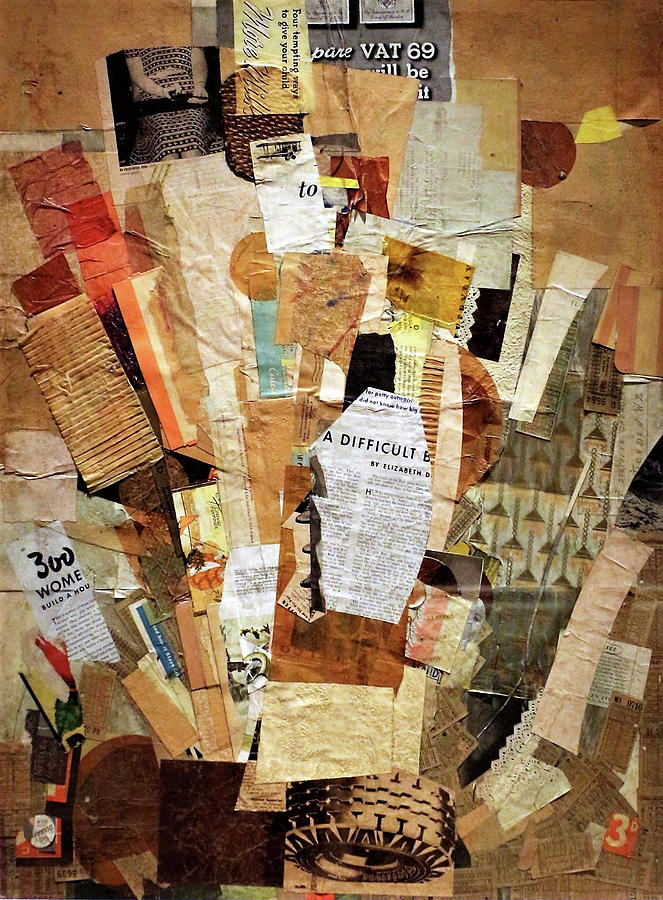
Clement Greenberg is an American critic. He graduated from Syracuse University with a degree in English Literature. After college, he worked as a dry-goods salesman for his father before deciding to pursue writing. After several years of writing, his work was published. He also became a critic. His contributions are still highly influential.
Art is not, and should never attempt to be, a higher truth
The question is: Should art be considered higher or less than reality? The answer is not obvious. While experts differ in their definitions of art, there is one certainty. These experts are more likely to argue that art is more important then reality.

Art should always be material.
The aesthetic unity principle referred to above is the same as the work of Harold Rosenberg (an American art critic of twentieth century fame), who attacked Greenberg in a lengthy essay. Rosenberg, a dialectician, viewed the canvas as a theater for a painter's act and argued that the painting should be a "material thing" in order to be considered "art." This idea was the basis for Action painting.
Art should be self-referential
Greenberg's Modernist painting theory held that art should only be self-referential and must not be influenced by the outside world. He argued that art and literature should be objective, without reference to the human condition or to other artistic forms, and should be a "pure activity." He believed that art should be able to lead to higher truths.
Clement Greenberg
Clement Greenberg is an American essayist who wrote as K. Hardesh. His work is associated with the mid-20th century American modern art movement and formalist aesthetics. His work is highly respected, despite being controversial.
Art and Culture
Greenberg's theory is supported by the intellectual arts world, but it has been taken to a different level than Greenberg might have preferred. One notable case is the writings of Michael Fried and Frank Stella. Fried faithfully applied Greenberg’s ideas while also incorporating his own concerns.

Rosenberg
Harold Rosenberg is one of the most prolific writers on art criticism. Brooklyn-born, Rosenberg received his law degree from Columbia University and then gravitated to the intellectual circle in New York City. He was an avid reader of literature, art, philosophy, drama and art criticism. He also contributed to many publications, including The New Yorker. He also wrote poetry.
FAQ
What can pop culture teach us about ourselves?
Our society today places more importance on material goods than all other things. This is especially true of young people. They spend hours a day staring at screens. They spend hours looking at screens, playing video games, and surfing the internet. All this distracts them and makes it difficult to focus on school work. As a result, they end up failing classes.
In today's world, everyone wants to be accepted. That means being popular. Popularity depends on having money, clothes, and other possessions. This leads some people to do things that aren't right.
We have become dependent on technology. All information is available to us thanks to technology. Unfortunately, not everything is accurate. False rumors are floating around the Internet. These rumors quickly spread because people share them through social media. It's easy and quick to post something without verifying whether it is true.
People are losing their ability to think critically. They believe everything they read on the Internet. They believe what is written in magazines and on television. They stop thinking for them selves. Instead, they follow the crowd.
We lose control over our lives when we rely upon others to tell the truth. Pop culture teaches that we should depend on other people. It also makes us lazy. The truth is out there, but we don't always find it.
What are some positive elements of pop culture
Pop culture isn't all bad. Pop culture can be used to spark conversation. It allows people to express creativity. Pop culture can help artists promote their work.
Pop culture brings people closer together, which I believe is the best part. Everyone wants to watch the same shows. Everyone enjoys the same music. Everyone enjoys the same films. Pop culture allows us connect.
The problem is that not all pop culture is healthy. Many films glorify violence. Some television programs make fun of people who have mental disabilities. Some bands also encourage fans to take drugs.
What can we do about pop culture's negative aspects?
We need to try to avoid the bad aspects of pop culture. We should not allow it to influence our lives. It can pose a threat to our health. It can lead to crime. It can even cause problems in our relationships.
Pop culture can also be a source of help or harm to society. Are they promoting positive values? Are people being indoctrinated to do terrible things?
Lastly, let's ask ourselves if we are content with the world we live. What music do you like? What do we like about the TV shows we watch What clothes do you wear?
If we are concerned about our future, it is essential that we take responsibility and be accountable for our actions. It is up to us to choose the kind of world that we want. We can then choose the right pop culture.
What are some examples of pop culture in today's world?
Pop Culture is a 21st-century art form. It encompasses all forms of popular entertainment, from music, film, TV, video games, fashion, advertising, comics, etc. The term was first used by Neil Postman in his 1985 book Amusing Ourselves to Death. Pop is a type of mass communication that relies on cheap tricks or formulaic devices to give the illusion of spontaneity.
However, he said that most people don’t enjoy true enjoyment because their culture has conditioned them to want media experiences that make it seem superior to others. In addition, he argued that this type of cultural expression had contributed to the loss of critical thinking skills among young adults.
Pop culture is also known as consumerism or popular culture.
Why is pop music popular?
Pop music is popular because it is fun! Pop music is uplifting and can give you a great feeling of freedom. People listen to pop music and can think about nothing but themselves. They don't need to worry about what others think. Pop music is so beloved because of this. People enjoy songs that make their heart sing. When you feel low, turn on the radio for some upbeat tunes. You might even find yourself singing along. This is why pop music has been so successful over the years.
How do I use pop culture in my marketing strategy?
Understanding pop culture trends is key to understanding how to incorporate it into your marketing strategy.
Let's suppose you wanted to promote the release of a new film. What type promotion could your company run?
You could make a trailer using clips taken from the movie. You could also find a clip featuring one of your products/services and include it in the trailer.
Another option is to create a parody trailer using clips from other movies.
If your product or service is closely related to the movie's themes, you can create a campaign that follows the film's storyline. A product that supports astronauts' health while traveling through outer space might be an example of a product you could advertise.
You could promote your business based on the movie's storyline if it was connected. You could, for example, offer food samples to customers who purchase tickets to the movie.
What is popular culture in the world of music?
Popular Music Culture is an ever-changing phenomenon that takes many forms.
Popular music culture is defined by its use of certain styles of music (e.g., rock, jazz) and lyrics. It also includes the impact of visual media such as television, fashion and advertising on artists' careers, as well as public perception.
It's also about how fans interact with their favorite artists.
The rise of superstars - musicians who have made a name for themselves - is one aspect of popular music culture.
These icons transcend many genres and have become cultural icons. Their popularity has also influenced the development of popular music.
Other aspects of popular music culture include:
* The rise of recording technology -- from acoustic instruments and electric guitars to microphones and microphones.
* The inventions and use of the radio and record player;
* The birth and rise of rock & roll.
* The introduction TV and film
* The advent of MTV and VH1;
* The creation and use of the internet.
What are some examples of pop culture in 2020?
The music business is changing rapidly. In fact, this year we saw Billie Eilish (Post Malone) and Travis Scott reach number 1 in Billboard's Hot 100 chart. This was an incredible feat for any artist.
The same holds true for streaming services. Spotify reported that Spotify streamed more 10 billion hours audio content last year. It's 5x more than the content users were listening to five years ago.
This has caused a significant shift in media consumption. The majority of people now spend their time reading content, rather than creating it.
All age groups, including toddlers and retirees, have access to audio content. This means anyone can record, edit or mix their music and then release it.
You don't have to go to school to learn classical instrumentation in order to play your favorite songs. Download an app, add your voice, then upload them to YouTube.
If you don't feel like making music, why not just watch? There are countless channels dedicated to making videos of songs ranging from covers to parodies.
Statistics
- Latinos represent roughly 19% of the U.S. population. (npr.org)
- In 1987, US films captured 56% of the European film market. (socialsci.libretexts.org)
- According to Kathryn Sorrells (2013, pp. 142-144), there are several ways that we can become informed consumers of popular culture. (socialsci.libretexts.org)
- Yet a Nielsen study shows they account for 42% of the country's most-watched content on streaming services. courtesy Nielsen (npr.org)
- According to Dictionary.com, popular culture, or low culture as it is sometimes referred to is comprised of the “cultural activities or commercial products reflecting, suited to, or aimed at the tastes of the general masses of people” (7/21/19). (socialsci.libretexts.org)
External Links
How To
What is popular culture that you access via media technology?
Pop culture is everywhere. It is everywhere.
Popular culture influences our lives. What we read in magazines, hear on the radio and see on TV influences our daily lives. We watch television, go shopping with friends, enjoy parties, get to know people online, surf the Internet, and play video games.
However, just because something is popular does not mean that it is good for business.
This is where media technologies come in. They offer tools that enable us to connect with consumers and access popular culture.
You can use media technologies to:
-
Write content about products or services
-
Engage fans with your favorite actors, authors, and musicians
-
Promote brands and businesses
-
Advertising
-
Track consumer trends
You need to be familiarized with popular culture if you want to grow brand awareness, get more customers, generate leads or increase customer loyalty. You can do this through media technologies.